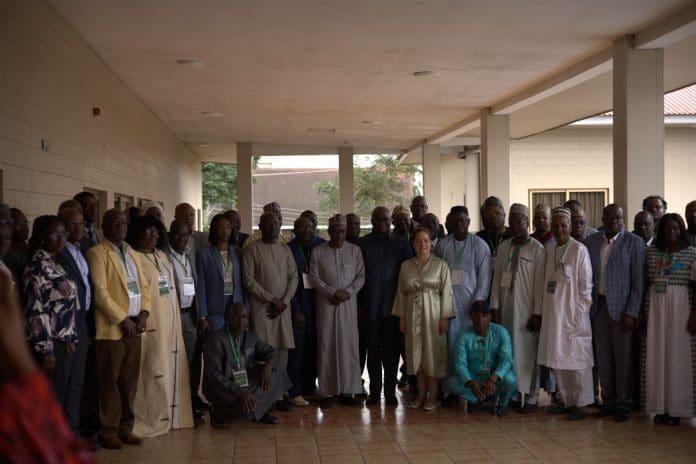FACILITATING REGIONAL TRADE IN LIVESTOCK AND RED MEAT IN WEST AFRICA AND THE SAHEL: ECOWAS LAUNCHES PHASE 2 OF THE WEST AFRICA LIVESTOCK MARKETING SUPPORT PROGRAM (PACBAO)
To address the various challenges facing the livestock sub-sector in the region, ECOWAS, with technical and financial support from the Swiss Development Cooperation, launched Phase 2 of the West Africa Livestock Marketing Support Program (PACBAO) on Tuesday, 9th September 2025, in Accra, Ghana. The ambition is to enhance the modernisation of
Intraregional trade in livestock and red meat, stakeholders’ capacities and skills building, and the improvement of the political and regulatory environment.
To recall, the livestock sector in the region is a vital part of its agricultural economy. The sector significantly contributes to food security, income, and employment, especially in rural areas. Yet, the associated challenges, including import dependence and market gaps to be addressed, are still many. Cross-border corridors run through the Sahelian and coastal countries, linking livestock development areas to large urban consumption centres. These routes are severely affected by insecurity, road harassment, poor infrastructure, and the mismanagement of livestock markets and abattoirs.
ECOWAS has been implementing the West Africa Livestock Marketing Support Program (PACBAO) since 2018. Indeed, the first phase of the program was implemented from 2018 to 2023 and contributed to strengthening (i) the intensification of quality beef production, (ii) the modernization of the livestock and red meat trade, and (iii) the strengthening of business links among stakeholders along the value chain. To consolidate, amplify, and sustain the achievements of the first phase, the Swiss Development Cooperation has agreed to support ECOWAS in a second phase of PACBAO for the period 2024-2028.
The Accra workshop aims to share and collectively agree on the best way to disseminate the key achievements (innovations, best practices, and lessons learned) of phase 1 on the one hand and launch Phase 2 of PACBAO on the other hand. “As we launch Phase 2 today, we must build on the achievements of Phase 1, consolidating and scaling up intervention to transform the livestock and meat sector across the region. We see PACBAO as a strategic instrument not only for food and nutrition security, but also for advancing regional trade integration, resilience, and inclusive economic growth”, Hon. Eric Opoku, Minister for Food and Agriculture, Republic of Ghana, said before declaring the workshop duly open. He also encouraged participants and all stakeholders to commit to sharing knowledge, strengthening partnerships, and ensuring that Phase 2 delivers even greater impact than Phase 1.
Adding to the Minister’s remarks, Ambassador Mohamed Lawan Gana, Resident Representative of the ECOWAS Commission in Ghana, further emphasised, “Livestock farming contributes significantly to the GDP of Sahelian countries and provides jobs for up to 50% of the population, particularly young people and women. Despite security and environmental challenges, community-led approaches now recognise that environmental resilience and security must go hand-in-hand. In response to the strategic importance of livestock farming, ECOWAS has adopted policies such as ECOWAP, CET, and ETLS, alongside specific programmes addressing livestock farming. The PACBAO programme, launched in 2018, reflects this political will by tackling key challenges in the livestock and red meat value chains. With Phase 2 of PACBAO, ECOWAS seeks to consolidate and expand the achievements of Phase 1, mobilising stakeholders across West Africa and the Sahel to build an organised and stable livestock and meat market.
Like for Phase 1, PACBAO-2 is mainly financed by the Swiss Development Cooperation, amounting to 8 million Swiss francs, which is about 10 million US dollars, and which represents 53% of the program’s total budget. The program runs from December 1, 2024, to October 31, 2028. The workshop brings together in Accra about sixty high-profile participants from ministries in charge of livestock from ECOWAS Member States, plus Mali and Chad, regional organisations, the federation of cooperatives of the livestock and meat sector, the private sector, farmers’ professional organisations and inter-professions, resource persons, and financial and technical partners.
Source: newsghana.com.gh











